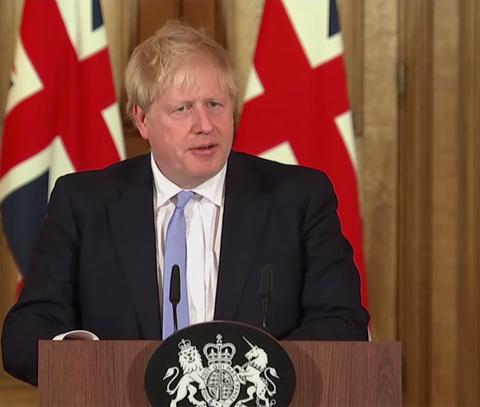Millionaire footballer Marcus Rashford knows what it's like to go hungry. He remembers a childhood where food could be scarce, despite the fact that his mother went to work at 8am every morning. He remembers going to breakfast club and receiving free school meals. At only 22, he exhibits an incredible self awareness of how this help contributed to his success.
When coronavirus hit, alongside economic downturn and growing unemployment, the Trussell Trust reported that food bank usage doubled in the first week of lockdown. People were hungry. So Marcus Rashford, a Good Samaritan in football boots, set out to make sure that children across the country do not starve. Within weeks he had started a campaign that helped feed more than two million children in the UK.
Rashford’s ask was simple: extend free school meals throughout the summer holidays, a time when many parents struggle to feed their children one meal a day, let alone three. In June, Prime Minister Boris Johnson refused to extend the scheme. Rashford kept campaigning, and public objections got louder. Under pressure from Rashford and perhaps in response to the growing backlash, Downing Street announced a £120m “COVID summer food fund” for 1.3 million children in England. Thanks to Rashford’s compassion and persistence, children were able to eat again.

Fast forward to October, Rashford’s campaign ramped up for a second time. Over a million people signed a petition asking for free school meal support to be extended through half-term for people in receipt of Universal Credit. But the Conservative government said no, again.
For many people, Rashford’s campaign was the first time they’d heard about the extent of child poverty in the UK. But this is nothing new. To understand how this happened we need to look back over the last decade of austerity and welfare reform. Several bits of seemingly-benign legislation made the news. But put together, these new laws formed what many have called ‘a war on the poor.’ The Spare Room Subsidy or “bedroom tax” meant that households with more bedrooms than people had their benefits cut. The Local Housing Allowance cap meant there was a limit set on how much housing benefit a person could claim, even if their rent was higher than the limit. The overall benefit cap meant the maximum any household could claim in benefits was drastically reduced. And, most notably the roll out of Universal Credit, a new system of benefits, caused more problems than it solved.
As well as the policy, there is constant misinformation being spread about poor people in this country. This week a Conservative member of parliament claimed that children in his constituency were living in brothels and crack dens and their parents were spending their food vouchers on drugs. This is a calculated act of misdirection. If anything is going to change, we must let go of the myth that people who have less money are inherently bad.

In the last five years, the Trussell Trust reports food bank usage has increased by 74%. The Children’s Society reports that the number of children living in poverty in the UK is set to reach five million this year. Official government data indicates an estimated 165% increase in street homelessness since the Conservative government came into power ten years ago.
Marcus Rashford put it best: “Not having access to food is never the child’s fault.” It shouldn’t need to be said, but there is no circumstance in which denying a child access to food is the right, moral, acceptable or even economically sound thing to do. No matter what their parents' circumstances, there is no reason for a child to starve. It’s beyond belief that adults can sit around debating whether a child should go hungry or not in the United Kingdom in 2020.
The Government is declining to feed children over this October half-term holiday. In response, ordinary people have eagerly jumped in to fill the gaps. Local councils have made their own provisions without additional funding from the government, so have schools. Local restaurants, pubs and football clubs are offering free meals. People are donating to charity, and to food banks, local groups and individuals are organising their own meal distributions. Over the past couple of days alone, communities have provided tens of thousands of meals. People are awed, inspired even, at what can happen when we all band together. But this is not the time for inspiration, for heartwarming stories. We are talking about people’s lives. And no amount of banding together - however remarkable - can fill the gap. Even if every last one of us does our part, the sad truth is that we won’t be able to provide food to every child in need. Only the government can even come close.

There is no easy place or time to be poor, but this year has presented an increasingly hostile environment for the least wealthy among us. When you're risking your life doing essential work, working irregular shifts or a zero hours contract in a job that doesn't pay enough anyway, or out of work, or furloughed, a safety net that means your kids can eat even if your income stops, or your Universal Credit is delayed, might just help you sleep at night.
Boris Johnson has said that his government will “do everything in our power to make sure that no kid, no child goes hungry”, but the number of people living in poverty is on the rise. If this country is truly interested in bettering the lives of the poorest people in our society, we need to be entirely less judgemental and a lot more Rashford.
Written by Jade E. Bradford





